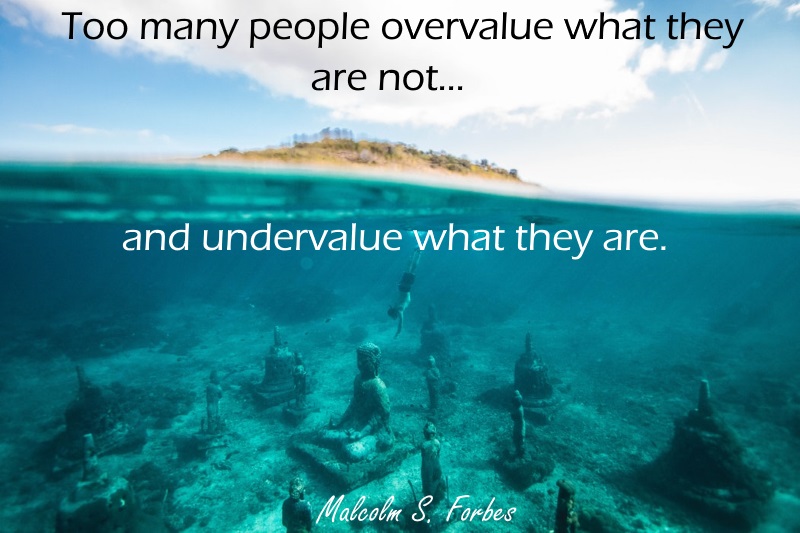
In last week’s blog, I began discussing the results of a study we conducted at Queendom: What are the characteristics of people who truly like themselves? What traits do they possess? How do they differ from people who don’t like themselves? Here’s what the study revealed:
(Note: Scores range on a scale from 0 to 100)
Kindness
- Score for people who like themselves: 76
- Score for people who don’t like themselves: 54
It’s not hard to imagine really: People who like themselves are friendly, amiable, warm, compassionate, and kind to other people. In contrast, people who dislike themselves are not, and here’s why: When we don’t like ourselves and have low self-esteem, we tend to exhibit this in two ways: We either internalize our dislike by being self-critical and harsh with ourselves, or we externalize it by lashing out at and criticizing other people (i.e. making others feel inferior in order to make us feel better about ourselves).
Tips to help you be a little kinder to others:
- Small gestures can make a big difference. When I was leaving home this morning, I held the door open for a woman who was coming down the stairs right behind me. She suggested that I go on ahead, as she needed to take her time going down the steps, but I assured her that I wasn’t in a hurry and would wait. Her smile and appreciation when she got to the door warmed me up more than the humid weather outside.
- Get into volunteering. There’s an indescribable feeling that overcomes you when you do something that improves the life of someone else. The genuine look of gratitude on a person’s face is a powerful salve for the soul. You can also foster animals until they are ready for adoption, and honestly, how is that not the most fun and heart-warming thing to do?
- Start by being kinder to yourself. Be more mindful of the language you use to describe yourself to other people, as well as the ongoing chatter that goes on in your head. Treat yourself the same way you would treat someone that you really love.
Creative Thinking
- Score for people who like themselves: 77
- Score for people who don’t like themselves: 56
Your mood significantly affects your thoughts, as well as your ability to come up with creative ideas. If you’re in a good mood, I can guarantee that the content and breadth of your ideas would be vastly different from those you generate when you’re in a bad mood. This may be the reason why people who like themselves (and therefore, are generally in better moods) have the right mindset to think creatively.
Tips to boost your creativity:
- Can’t think of a solution to fix a problem? Turn it around: Think of ways to make the problem worse. It could end up inspiring the perfect idea. For example:
You’ve just had a fight with a friend. What can you do to make the situation worse?- Refuse to apologize until she does.
- Give her the cold shoulder and avoid all her calls.
- Gossip about her.
- Turn her other friends against her.
- Use your brain’s uncanny ability to make connections. Grab a dictionary, book or newspaper, open it on any page, and pick the first or last word that appears. How would you describe that word? Create a list of its characteristics and traits, and think about how it relates to your problem.

Authenticity
- Score for people who like themselves: 71
- Score for people who don’t like themselves: 55
People who like themselves accept themselves unconditionally – their strengths, their faults, and their quirks. When you like yourself, you’re willing to be the real you, and if other people don’t like you as you are, well, that’s their problem. Whereas being fake and putting on a mask in order to be accepted can be incredibly exhausting, there’s a great sense of freedom that comes with being authentic.
Tips on how to be more authentic:
- Accept that you have faults…and that everyone else does too. Try as we might to put our best selves forward, it’s much easier to connect with other real and genuine people when we are not afraid to be vulnerable. Forget the people who don’t like you as you are. You can and will find someone who will appreciate you for you. And remember: Most people can sniff out a fake persona eventually.
- Say what you really think and feel, but do it tactfully. It’s a lot easier for most people to accept a contrasting opinion or negative feedback if you do it in a diplomatic way. If you have trouble with tact, there are many courses online and offline, as well as coaching, to help you improve your social skills.
- Don’t bend over backwards to try to get people to like you, or you’ll just be creating another persona: The People-Pleaser. By all means, be kind, empathetic, open-minded, and flexible. Strive to compromise with others. However, don’t go to excessive lengths to try to get others to like you, especially if they are not willing to do the same.
Diligence
- Score for people who like themselves: 71
- Score for people who don’t like themselves: 54
Why would people who like themselves be diligent and conscientious? Because they care. They care about their reputation, the quality of their work and what their work says about them, and they care about how their actions affect other people. So they’ll think ahead, contemplate the consequences of their actions, weigh the pros and cons, and have a plan B.
Tips on how to be more diligent:
- Create a list of the things you need to do. At least some of those occasions when we don’t come through for someone could be chalked up to a simple lack of organization. Know what’s expected of you. Write things down and set reminders for yourself. Our smart phones can do pretty much everything, so why not use our technology to stay organized?
- Try as much possible to anticipate obstacles that could prevent you from following through on a task or promise. Come up with solutions to overcome your obstacles rather than excuses. So if you’re a procrastinator, take a systematic approach to the task: Promise yourself that you’ll work on it for an hour, reward yourself for doing it, take a break, and then try for another hour. Bit by bit, what once seemed liked an overwhelming and unappealing task will suddenly seem feasible.
- Don’t make promises you can’t keep.
“If you’re busy that weekend and can’t come, let me know,” I said to my cousin when I was moving into a new place.
“Don’t worry about it. I’m THERE. You can count on me,” he assured me. So where was he when moving day rolled around?
“I’m up north at a chalet. I wasn’t in the mood to do anything this weekend,” was his response.
If you can’t come through for someone or, if I put it plainly, just don’t want to, then make it clear from the beginning. Better to turn someone down from the onset then to break a promise and really leave them in a bind. Simply put, do what you can if you can, and don’t offer more if you can’t.

Dependability
- Score for people who like themselves: 84
- Score for people who don’t like themselves: 73
I gave my 16-year-old cousin only one driving tip (aside from the obvious “don’t drink and drive” and “give others the right of way”):
“If you need to merge into another lane, you can always trust those big rig truck drivers to let you in…they’re good drivers and they’re courteous. You can depend on them, unlike most of the kooky people on the road.”
People who like themselves are dependable for the same reason that they are diligent: Because someone who cares about themselves will almost always care about the well-being of other people.
Tips on how to be more dependable:
- Consider the advantages of being dependable: You’ll develop a reputation for reliability, and while people may increasingly turn to you for help, it also means that most of them will be there for you when you need a hand. Being dependable also makes you feel better about yourself, because you’ll be making a positive difference in someone’s life. Doing good deeds, and the gratitude that comes with it, is the greatest sense of bliss.
- Be proactive and offer help pre-emptively. Let others know that you’re available if they need you, but with the caveat that you can follow through. If you see a need that you can fill, offer to do so.
- Admit when you’re wrong and when you’ve made a mistake. I know this is easier said than done. Have you ever swallowed a chip or French fry “crooked” and could feel its jagged edges in your esophagus? That’s what it feels like when you have to swallow your pride and take responsibility for your actions. However, if you can admit when you’re wrong, you’ll feel better about yourself, experience a greater sense of self-respect, and – perhaps with some exceptions – earn the respect of people around you.
While I may have offered tips on how to develop the different traits covered on the test, the real work must start from the foundation: Your self-esteem and self-value. Life is so much more challenging when you don’t like yourself. Goals are harder to achieve, relationships harder to create, and life all the more intimidating when we don’t love and trust ourselves. Just as you can’t build a home on an unstable foundation, you can’t start a journey toward self-improvement with a shaky self-esteem. Start from there, and the rest will fall into place.

Insightfully yours,
Queen D


Dr Bob Rich
Very insightful and useful as usual, Deb. Thank you for being on this planet. :)
Queen D
A very big thank you Bob :) And I can certainly say the same to you: You are an amazing human being!